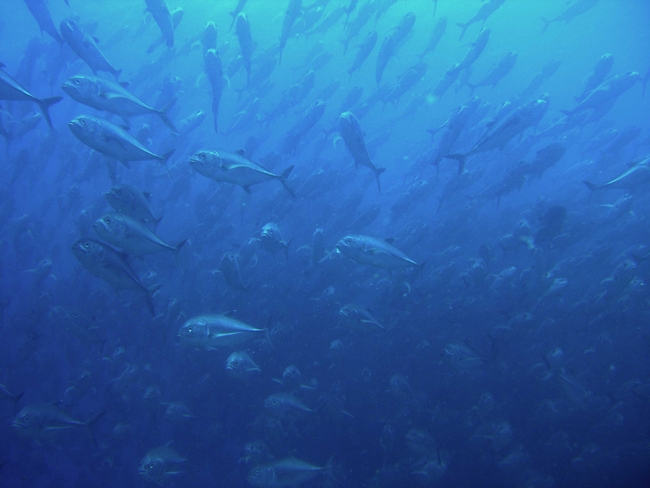Reef fish diversity under climate change
This research project aims to forecast future changes in ETP reef fish biodiversity in response to climate change and their implications for key benefits supported by reef fish for nature itself and for people.
Specifically, this study will: 1. Determine how taxonomic and functional reef fish diversity have changed over the past decades (2004 to 2023) throughout the ETP, and identify the environmental correlates that may have prompted these changes. 2. Forecast and map future changes in ETP reef fish taxonomic and functional diversity that are likely to occur between 2025-2055 as a result of climate-driven shifts in species distribution ranges and abundance. 3. Based on the structure of future (2025-2055) ETP reef fish communities, estimate their potential to sustain key benefits for society (i.e., highly productive and nutritious catches) and for nature (i.e., contributions to the inorganic carbon cycle through carbonate excretion). 4. Identify opportunities to prepare fisheries management for climate change by locating the fish species whose abundance may increase, decrease or remain constant between 2025-2055 and evaluating the extent to which these are currently targeted by local fishers. Locate potential opportunities for profitable, desirable, and sustainable shifts in targeted/used resources to adapt to climate change and its consequences in catches.
This project is possible through the PhD fellowship awarded by the DAAD to Ms. Andrea Arriaga, an early career scientist from Costa Rica within the Eastern Tropical Pacific Node of the Global Coral Reef Monitoring Network.






